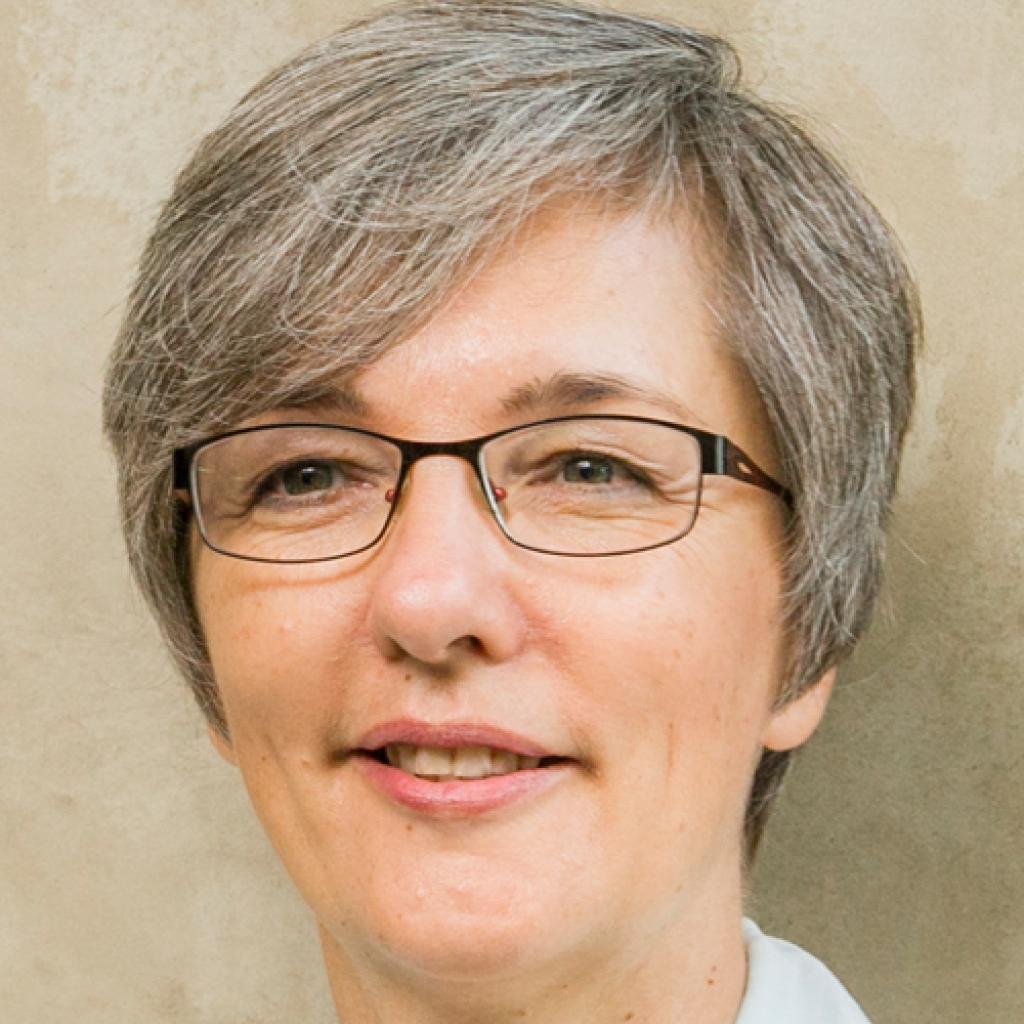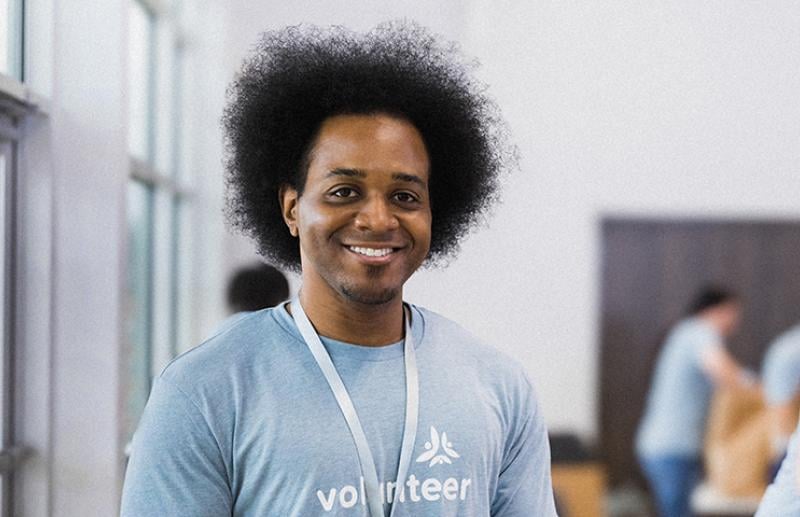Remain relevant in a world of rapid technology changes
The skills acquired through this PGDip will serve all managers, not only IT managers. It will help you to become digital and data literate in order to manage new technologies in your environment. It is also aimed at improving the leadership capabilities of all managers regarding the management of new technology. This translates into strengthening your organisation’s resilience amidst the increasing digitisation of services, products, devices and ways of working.
The Futures Studies underpinning of the PGDip will help you understand the forces and trends that shape the future in terms of new technologies. It will help you to make better long-term decisions.
You will learn how to use a framework to deal with current and future technological changes and to respond appropriately to a world of work under pressure to digitise. This will enable you to leverage opportunities and mitigate risks in order to gain a competitive advantage. In addition, this PGDip includes a module on responsible leadership, which will help you take your stakeholders along on a journey of technological change.
This internationally accredited PGDip is the only programme of its kind presented in Africa, and one of only a few in the world. Passed at a certain level, it can give you access to the MPhil Futures Studies.
Postgraduate Diploma
Postgraduate Diploma Futures Studies Managing New Technologies
Blended
Dates for 2024: (blended)*
- 15 January (Orientation) Remote. delete this full stop
- Classes commence 16 January @ 16:00 until 4 December
- Classes can run multiple evenings in one week
Foundation modules – Foundation modules – Tuesday (Blended 1), Wednesdays (Blended 2), Thursdays (Blended 3).
Specialisation modules – Wednesdays
Fees: R109 648 (2024)
Duration: 1 or 2 years
*The Business School reserves the right to change programme dates and times fees.
Acquire a unique skill set
This internationally accredited PGDip Futures Studies in Managing New Technologies is the only programme of its kind presented in Africa, and one of only a few in the world. It will help you to strengthen your organisation’s resilience in the context of changing and disruptive new technologies.
Key takeouts of this PGDip
- Will help managers on all levels to become digital and data literate in order to manage new technologies in their environments
- Strengthen your organisation’s resilience amidst the increasing digitisation of services, products, devices and ways of working
- For leaders, managers, consultants and strategic planners involved in planning their organisations’ technological future
- Remain relevant in a world of rapid technology change
- Improve your leadership skills regarding the management of new technology
- Learn how to deal with both current and future technological changes
Course Structure and Content
It is about not being left behind
The PGDip Futures Studies stream in Managing New Technologies is aimed at improving the leadership capabilities of all managers regarding the management of new technology. It is also aimed at improving the organisation’s ability to become more resilient amidst the increasing digitisation of services, products, devices and ways of working.
The skills acquired through this PGDip will serve managers in all functional areas. It will help to break down the fear of change and the fear of being left behind while others are embracing technology. It will help managers on all levels to become digital and data literate in order to manage new technologies in their environments.
This PGDip will provide you with a framework within which you can deal with both current and future technological changes. It includes a module on responsible leadership, which will help you to take your stakeholders along on a journey of technological change.
Why the positioning of MNT within a Futures Studies environment?
Futures Studies will help you understand the forces and trends that shape the future – in this case the continuous development of new technologies. This will enable you to manage long-term organisational strategies aimed at designing the ideal future. The programme will also equip you with high-level competencies to react meaningfully to growing complexity in the organisational environment while taking Africa and South Africa’s developmental challenges into account.
Acquire a unique skill set
This internationally accredited Postgraduate Diploma Futures Studies is the only programme of its kind presented in Africa, and one of only a few in the world. It will help you to strengthen your organisation’s resilience in the context of changing and disruptive new technologies.
PGDip Futures Studies stream in Managing New Technologies (MNT)
This programme is aimed at those who need to take the management of new technologies into account in longer term planning. The skill set acquired through this programme will add value to managers in any industry. This includes those working in IT, management and consulting, entertainment or the creative industries, education, and financial services. This programme will therefore benefit:
- Leaders, managers, strategic planners and consultants involved in companies, divisions, start-ups, projects, or networks of gig workers
- Those involved in long-term decisions regarding the adoption of new technologies for strategic gain
- Those who want to play a significant role in creating a time horizon of a better future for South Africa and for Africa.
The modules of the PGDip Futures Studies are split into a foundation phase (covering skills, frameworks and tools you can apply in any field of work) and a specialisation phase (stream-specific modules).
You need to do four of the following five foundation phase modules:
- Term 1: Understanding the World (compulsory)
- Term 2: Responsible Leadership (compulsory)
- Term 3: Thinking Frameworks (compulsory)
- Term 4: Organisational Behaviour OR Managing Risk and Uncertainty
Next, you need to do the four stream-specific specialisation phase modules:
- Term 1: Management of Technology and Innovation (15 credits)
- Term 2: The Future of Technology (15 credits)
- Term 3: New Technologies Taxonomy (15 credits)
- Term 4: Managing New Technologies Capstone (15 credits)
This programme is presented in the blended learning format, making it easier for you to study while you work.
The blended learning classes consist of late-afternoon classes once every week for those doing their PGDip over 1 year, or once every fortnight for those doing their PGDip over 2 years. The blended learning classes are presented from the Business School’s Hyflex classrooms. You can choose to attend the compulsory classes online, or in person on campus from the Hyflex classrooms. The online classes are presented synchronously with the on-campus classes. At Stellenbosch Business School we put a strong premium on face-to-face interaction, regardless of whether you attend classes in person or virtually.
The specialisation modules and foundation modules alternate weekly. This means one week of foundation modules is followed by one week of specialisation modules. The specialisation modules are presented on Wednesday afternoons from 16:00 till 20:15 (short break included), while the foundation modules are presented on Tuesday, Wednesday and Thursday afternoons from 16:00 till 20:15 (short break included).
The advantages of blended learning include:
- Flexibility: Study while you work with the flexibility of digital class attendance, which means minimum time away from work.
- Less travel: The blended learning delivery option opens up access to students from elsewhere in South Africa, from other African countries and even further afield. It also lowers the opportunity cost to do this programme with us as it reduces travel and accommodation costs.
Stellenbosch Business School provides additional access to its programmes through its Recognition of Prior Learning (RPL) process, as recommended by the Council on Higher Education (CHE). The purpose of the Council on Higher Education’s policy on Recognition of Prior Learning is to develop and facilitate the implementation of RPL across the higher education sector and to base this on the principles of equity, access, inclusivity and redress of past unfair discrimination with regard to educational opportunities.
In line with the requirements of the Council on Higher Education, the Business School may admit up to 10% of its student body per programme under RPL.
Candidates who wish to be admitted under the RPL policy will firstly have to submit all the documentation as required for all prospective students. In addition, prospective students applying for this PGDip need to adhere to the following:
- Have at least an NQF 4 qualification.
- Have at least 10 years of working experience after obtaining a school leaving certificate, of which at least 5 years should have been in a management or related professional position.
- Submit a comprehensive CV, indicating detailed areas of responsibility as well as information of activities outside the work environment.
- Provide the Business School with the names and contact details of at least two persons who can testify about the candidate’s managerial or related professional abilities (typically current or former line heads). These persons will be required to give a detailed personal reference about the candidate on forms provided by Stellenbosch Business School.
- Write and submit three motivational essays (specific topics are provided)
The RPL selection process entails the following:
- The Business School’s Admissions Committee (programme head and another academic) will conduct an in-depth interview with the candidate and make a recommendation about admission.
- The Admissions Committee will consider the full application including the interview recommendation and the inputs received from the references for admission.
- A notice of admission is sent via the Business School’s Academic Planning Committee to the Board of the Faculty of Economic and Management Sciences at Stellenbosch University.
- RPL candidates need to apply by 31 October of each year to allow sufficient time for the assessment process.
- Note that the learning acknowledged in terms of RPL cannot also be used to grant exemption of credits within the same programme.
1-year PGDip
- Delivery mode for all modules (foundation and specialisation): 1 late afternoon session per week for 40 weeks + 4 weeks of assessments
2-year PGDip
- Delivery of foundation modules in Year 1: 1 late afternoon session every second week
- Delivery of specialisation modules in Year 2: 1 late afternoon session every second week
This PGDip Futures Studies stream in Managing New Technologies will benefit
those involved in long-term decisions
regarding the adoption of new technologies for strategic gain
Programme Fees
Application fee for 2024
Tuition fees for 2024
Important:
Important:
- Payment of full programme fees for South African students: Students can pay the full programme fees upon registration, or they can pay 80% of the annual fees by the end of May and the balance of 20% by the end of September.
Payment schedule (calculated on outstanding fee after deposit payment):
28 February - 31 May - 20% x 4 months (80%)
30 June - 20 September - 5% x 4 months (20%) - Payment of full programme fees for international students: International admitted students pay 50% of the annual fee as deposit. The remainder is due one month before commencement of the programme. The South African exchange rate favours international students.
- Deposit: All students pay a deposit on acceptance of admission. South African students must pay a set deposit on admittance. International admitted students pay 50% of the annual fee as deposit. The deposit payable is non-refundable and will be deducted from the total programme fees.
- Assessment of international students’ applications: International students require a South African Qualifications Authority (SAQA) evaluation certificate to evaluate their degrees according to South African standards. The Business School’s International Affairs Office will first handle the credential evaluations of international students free of charge. For this to happen, you need to complete the online application, upload all certificates with your application, and pay your application fee. The International Affairs Office will then, as part of the application process, conduct an in-house credential evaluation after you have submitted your application. However, should the International Affairs Office be unsure about the status, recognition or accreditation of your qualification, we reserve the right to refer you to SAQA before we consider your application further.
- Application fee: The application fee must accompany the application. The application fee is non-refundable.
- Fees for second and subsequent years of enrolment: These fees will be adjusted to make provision for annual price increases.
- Travel and accommodation: Students are responsible for their own travel and accommodation arrangements and costs.
- Programme availability: The Business School reserves the right not to present a programme or programme stream if the enrolment numbers are not sufficient to make the programme sustainable.
- Fee changes: Stellenbosch Business School reserves the right to change the fees at any time.
Please use your Student Number as reference | Email proof of payment to [email protected] | Quote your student number in all correspondence.
Admission Requirements
Academic qualifications and other admission criteria for general PGDip Futures Studies and PGDip Futures Studies Managing New Technologies
- Academic qualifications: An appropriate Bachelor’s degree
- Work experience: A minimum of 2 years of experience in strategic management or strategic planning
- Essay: You need to write an essay on the topic provided.
- Comprehensive CV: Also indicate your work experience.
Write an essay to submit with your application
You need to write an essay of between 400 and 500 words on the topic outlined below, and submit this as PDF with your application pack:
Stellenbosch Business School aspires to be a source of value for a better world. How are your career goals aligned with being a source of value for a better world, and how would this postgraduate programme assist you in achieving your short-term (2 to 3 years) and long-term (10 years) career goals?
What if you don’t have the academic qualifications to apply?
You can still apply based on your management experience. You need to submit all the documentation and assessments as required for all prospective students, plus additional requirements as explained under Recognition of Prior Learning elsewhere on this page.
- About the online application process: The online application form consists of various sections. To progress from the one section to the next, all the information in the current section must be completed and accepted by the information management system. You will be able to complete the form in steps without losing information (i.e. you do not have to complete the application form in one sitting). The application process is the same for South African and international students. It is best to use Google Chrome as web browser when completing your application.
- Determine the NQF levels of your previous qualifications: To find out whether you qualify for this programme, please check the NQF levels of your previous qualifications with the academic institution(s) where you have studied, or contact [email protected].
- Assessment of international students’ applications: International students require a South African Qualifications Authority (SAQA) evaluation certificate to evaluate their degrees according to South African standards. The Business School’s International Affairs Office will first handle the credential evaluations of international students free of charge. For this to happen, you need to complete the online application, upload all certificates with your application, and pay your application fee. The International Affairs Office will then, as part of the application process, conduct an in-house credential evaluation after you have submitted your application. However, should the International Affairs Office be unsure about the status, recognition or accreditation of your qualification, we reserve the right to refer you to SAQA before we consider your application further.
- Checking the status of your application: You can go back to your application and check the status of your application.
- Vetting process: All degrees undergo a formal vetting process to eliminate fraudulent applications.
Click on the APPLY NOW button and complete the online application form by completing each of the required sections. You also need to upload the following supporting documentation:
- Proof of school-leaving mathematics results
- Certified copies of academic records (which must include a transcript of the subjects)
- Detailed CV
- Consent form to verify your qualifications (please download, complete and upload the form in order for Managed Integrity Evaluation (Pty) Ltd to verify your qualification documents)
- Motivational essay (see above)
- Copy of ID (or passport for non-South African students)
- Marriage certificate (where the applicant’s new surname does not match that on the degree certificates)
- Signed declaration form
Payment of your application fee can be done online:
- Bank details: Bank: Standard Bank; Type of account: cheque account; Account name: US Business School; Account number: 073003069; Branch name: Stellenbosch; Branch code: 050610; Beneficiary name: Stellenbosch University; SWIFT code: SBZAZAJJ.
- Enquiries about payments: Please send an e-mail to [email protected].
What happens next?
Your application can only be assessed by the selection panel if it is accompanied by your completed online application form and all the supporting documents, and if you have paid the application fee. The outcome of the selection process will be made known within 30 days or as soon as possible thereafter. If you are uncertain whether your application is complete and is being processed, contact [email protected] for assistance.
Deadlines for PGDip Futures Studies applications:
- 30 November for applicants from South Africa
- 30 November for applicants from visa-exempt SADC countries, and the rest of the world
- 31 October for Recognition of Prior Learning applicants.
Also note the following:
- Deadline for RPL applicants: Note that application deadline for Recognition of Prior Learning (RPL) applicants are earlier than those for other students.
- Study permits for international students: Obtaining a study permit (study visa) from the South African authorities can take up to 12 weeks from the date of being offered a place on a programme at the Business School. An early start with the application process is therefore recommended.
- Multiple-entry visas: Students from non-SADC African countries and other countries with visa requirements who need to apply for study visas can obtain a letter from Stellenbosch Business School confirming the duration of registration at the Business School. This will help students to obtain multiple-entry study visas in case of modular studies.
Study visa requirements for international students
All residential students who are non-South African citizens and are studying at Stellenbosch Business School require a study visa. Prospective students should contact their nearest South African Mission (South African Embassy, Consulate or High Commission), normally in their country of origin, to enquire about the requirements for study visas for South Africa. Applicants are required to present themselves in person so that biometric data may be captured. All international students can contact the Business School’s International Affairs Office at [email protected] for assistance. All international students must hold a valid visa for their intended activity prior to entering South Africa.
Notes on obtaining a study visa
- Obtaining a study visa from the South African authorities takes approximately 12 to 16 weeks from the date of application. However, some missions may process applications sooner. Sufficient time should be allowed for study visa applications to be processed.
- Your study visa application should include a copy of the letter offering a place on the Business School’s study programme. This letter will be provided by our Centre for Academic Administration once the application has been approved. A place on the programme must be confirmed before a study visa application can be considered by the South African Department of Home Affairs. Students should not proceed to Stellenbosch University or its Business School without a valid study visa.
- Although applicants are expected to determine exactly what they require to apply for a study visa, they can be expected to provide the following, among others: a police clearance certificate, proof of medical insurance recognised in South Africa, a radiology report, proof of sufficient funds, and an admission letter from Stellenbosch Business School. Your nearest South African Mission will be able to advise in this regard. The onus falls on the student to make sure that he/she submits a complete application pack.
- All documents should be certified and translated into English before submission (in order not to delay the outcome of the application).
Contact Us
If you need more information on programmes or need support with the application process, contact us here:
Programme enquiries and support with the applications process
Charmaine Garcia
Telephone: +27 (0) 21 918 4246
Email: future@stellenboschbusiness.ac.za
Admission and registration enquiries
Joanne Sleigh
Telephone: +27 (0) 21 918 4239
Email: [email protected]
Frequently Asked Questions
Futures Studies is about acquiring strategic foresight to make long-range decisions in order to mitigate risk and identify opportunities. You will gain an understanding how various futures will unfold so that you can make better decisions. Futures Studies analyses the interaction between a wide range of variables or forces and distils from these forces those issues that will affect the future of a country, government, entity (organisation or company) or individual. It studies the world of economics, politics, technology, demography, security, social values and other subject fields, both locally and globally. It therefore equips decision makers with ways to deal with change and to make the right decisions to survive but preferably thrive in a changing world.
An appropriate Bachelor’s degree. A minimum period of two years of experience in strategic management or strategic planning.
Yes, but on a volunteer basis only. Alumni from Stellenbosch Business School offer to mentor students during their studies and to provide career or industry advice. This service is offered in association with the Business School’s Alumni Relations Office and Career Leadership Office.
Academic assistance is offered via a web-based learning environment, various software and database resources, teams (dedicated study groups), informal learning groups, and tutorials for certain modules. Support is also provided by the IT Division, Library, Career Leadership Office, Admissions Office, Academic Administration, International Affairs Office, and Alumni Relations Office.
Yes, South African students can spread the payment of their fees:
Payment of full programme fees for South African students: Students pay a set deposit on admittance. Students on the 1-year PGDip can pay the full programme fees upon registration, or they can pay 75% of the annual fees by the end of May and the balance of 25% by the end of September. Students on the 2-year PGDip can spread their payment over 2 years.
Payment of full programme fees for international students: International admitted students on the 1-year PGDip pay 50% of the annual fee as deposit. The remainder is due 2 weeks before commencement of the programme.
The deadlines for PGDip Futures Studies applications are 30 November for applicants from South Africa; 15 November for applicants from visa-exempt SADC countries and from the rest of the world; and 31 October for Recognition of Prior Learning applicants.
Obtaining a study permit (study visa) from the South African authorities takes up to 12 weeks from the date of being offered a place on a programme at Stellenbosch Business School – an early start with the application process is therefore recommended. Recognition of Prior Learning candidates (all programmes) need to apply by 31 October each year. Late applications after the closing dates will only be considered in exceptional circumstances.










